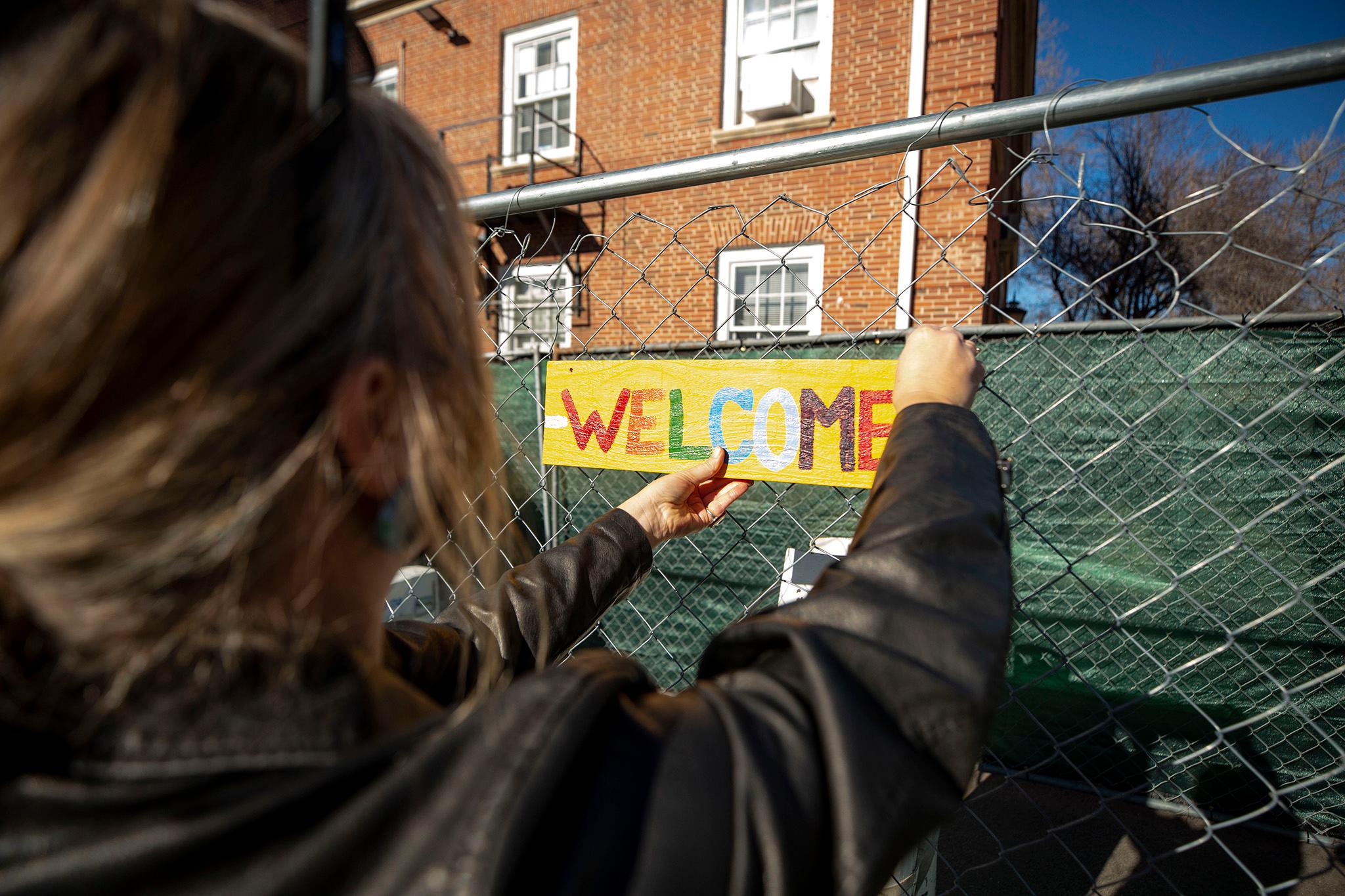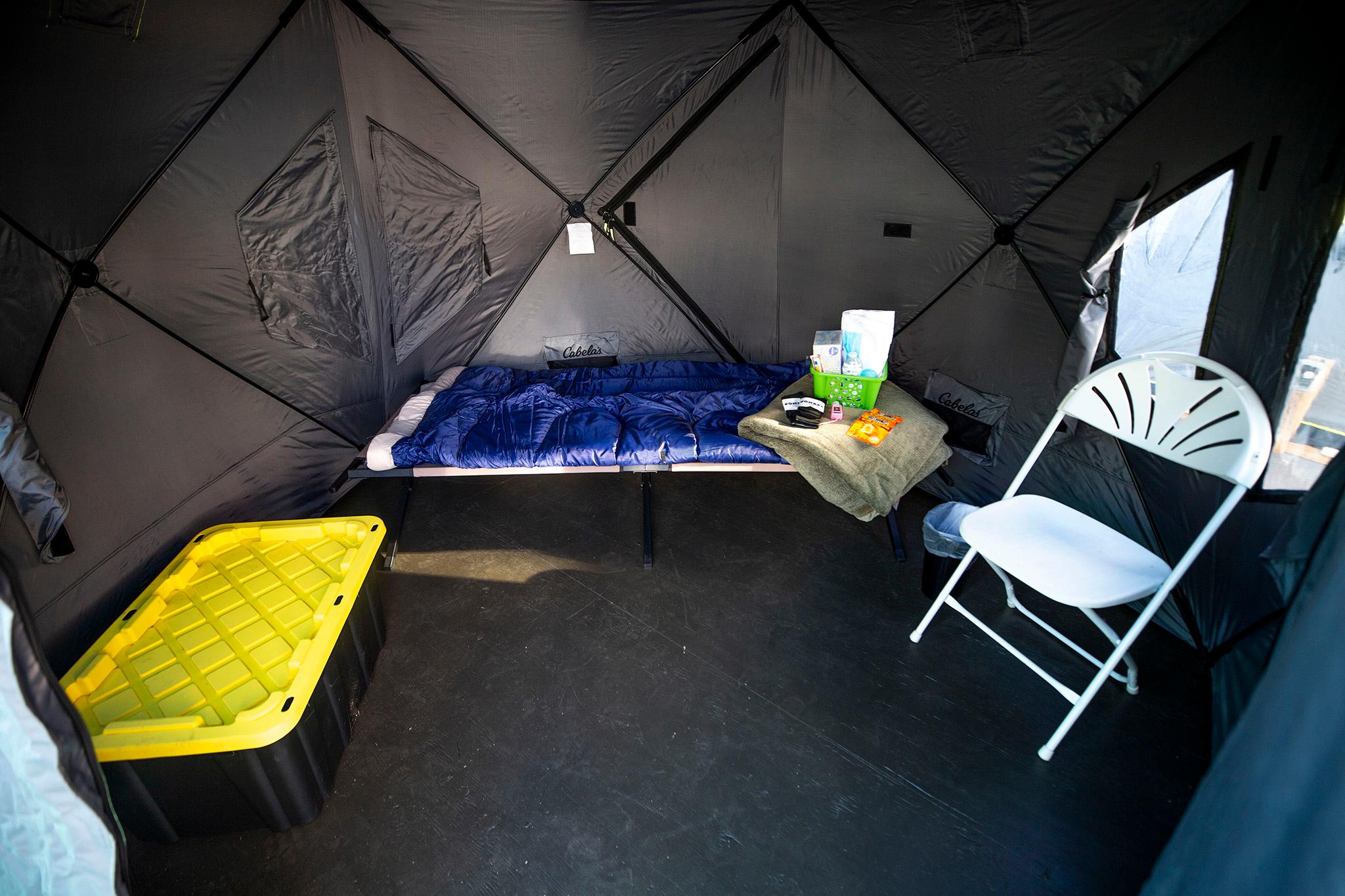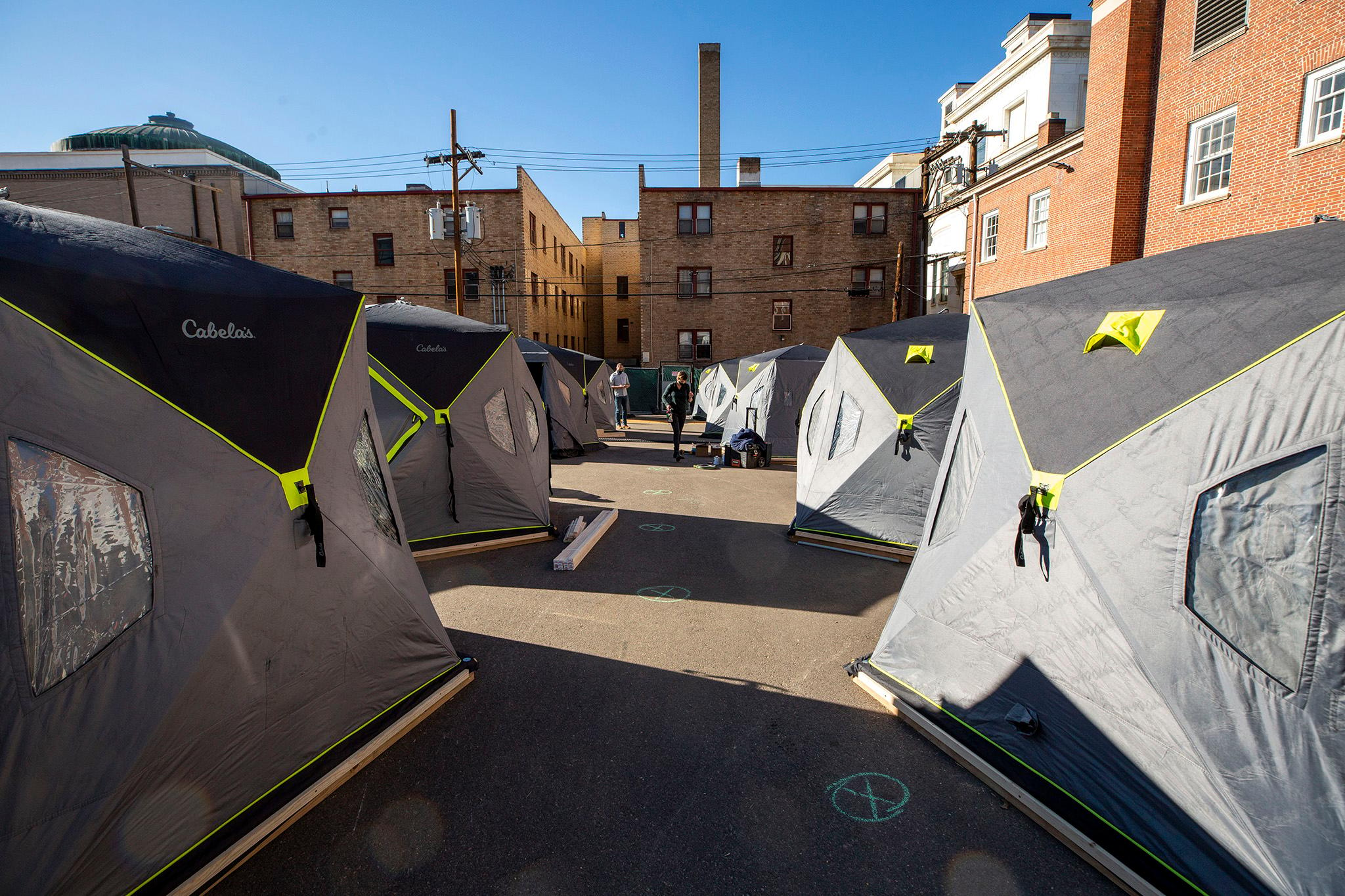Safe outdoor sites could become a permanent program after City Council hosts a public hearing and votes on legislation Monday. The sites provide sanctioned parking and campsites with tents and resources for people experiencing homelessness.
Denver first opened safe outdoor sites in 2020 to address homelessness during the first winter of the pandemic. They were imagined as six-month campsites with opportunities for extensions, hosted on a mix of private and city land.
According to city data, the eight sites that have existed sheltered over 500 people, 180 of whom later moved into permanent housing. Denver currently has three sites in operation, including one that specifically serves Native Americans, who are overrepresented in the city's homeless population. According to Denver's 2022 point in time count, which gathers information about homelessness on a single night, Native Americans made up 6.6% of surveyed people experiencing homelessness, despite only making up 1.8% of Denver's population in the latest census.
The sites were first implemented as an emergency temporary program that was set to expire in December 2023. But on Monday, City Council will vote on a bill amending Denver's zoning code to codify safe outdoor sites as part of the city's temporary managed communities, which also includes tiny home villages. This would mean the sites could continue past the end of this year and stay put in one location for up to four years, rather than having to move every few months.
"It's like a dream come true," said Cuica Montoya, program director of Safe Outdoor Spaces with the nonprofit Colorado Village Collaborative. "It's saying, 'Hey, this model is working, and we'd like it to continue beyond the COVID emergency and the recovery from the COVID emergency' ... It's a great surprise, but also feels like it was hard fought and hard won."
Montoya said the ability to stay put for multiple years under the new rules is especially key. It would allow Colorado Village Collaborative to grow capacity by saving money otherwise spent on moving operations each year.

The zoning changes could also expand accessibility of safe outdoor sites.
Current sites have to be attached to civic institutions or public buildings, but the changes would allow them to operate on vacant corner lots near major roads. The zoning changes would also lift the 30-unit cap on capacity, opting instead to determine capacity based on lot size.
But limitations on where sites can be in certain zoning districts remain. "You won't find these in the middle of a residential block," said Councilmember Robin Kniech, who co-sponsored the legislation with Councilmember Chris Hinds.
The first two safe outdoor sites in Denver were in Hinds' District 10, on Grant St. and Pearl St. He said that when they first opened, spots filled up in two hours.
"We got a lot of concerned residents because it was untested, people frankly didn't know what it was," he said. "I think once people realized the safe outdoor spaces are quite a bit different than an unsanctioned encampment of people, frankly, they want it back, they want it back in District 10, and they want more safe outdoor spaces throughout the city."

When the sites first popped up, some residents were skeptical, but public opinion improved.
In Park Hill, neighbors unsuccessfully sued the city in an attempt to prevent a site at Park Hill United Methodist Church, arguing the site would endanger children in the area. But in 2021, Denverite reported that previously concerned neighbors became campsite supporters. Denver Police Department (DPD) also told Denverite in 2021 that they were not aware of ongoing crime or safety issues related to the sites.
When asked for an updated comment, DPD directed Denverite to its latest crime dashboard, which does not clearly show whether or not calls were made to certain areas because of safe outdoor sites. But Montoya said Colorado Village Collaborative's analysis showed crime did not grow in areas with safe outdoor sites, and sometimes even reduced crime in neighborhoods. A Colorado Sun article from 2022 shows similar results.
This time around, the majority of the city's public input on the zoning changes supported safe outdoor sites. Of 60 comments received, 48 people wrote in favor of the sites. Many comments came from people who lived nearby, previously had unsanctioned encampments in their neighborhood or had other points of connection. The Colorado Coalition for the Homeless also wrote in support, praising how the sites helped their clients connect with medical care and case management.
"I'm very excited about this zoning change," wrote Genna Kohlhardt in a comment to the city. "I lived in capital hill for a long time, on a block that had an unsanctioned camp ground, and I can personally attest to the positive changes in my neighborhood, for both housed and unhoused residents, when the first safe outdoor spaces went up. Thanks for doing this really great work."
Another person, who declined to give their name in a comment to the city, said they were considering using the sites themselves.
"I think this is a great way to provide temporary housing while people get on their feet again," they wrote. "I am working on leaving an abusive relationship and this may be one of my only options as I do not have any family or many close connections able to accommodate me in the city."

A few public comments to the city expressed concerns about drug use, proximity to children, management at the sites and city priorities.
Three neighborhood associations, Platt Park People's Association, Winston Downs Community Association and Morgan's Historic District, wrote letters of opposition, in addition to a handful of community members.
"We are not in favor of having Temporary or Permanent tiny homes or encampments within and near the boundaries of our neighborhood because of the potential dangers to residents," wrote Jane Lorimer, President of the Winston Downs Community Association. "We feel exposure to sanitation issues, those using drugs and those who may have untreated mental health issues would create unsafe circumstances for hundreds of students from ECE to K12 within our immediate area as well as to our residents."
Montoya said she thinks comments like these come from people who have not had the chance to learn about the program.
"I think it's always an opportunity to educate people on, there is crime that takes place with or without an SOS [safe outdoor site] in the neighborhood," she said. "I think we just really need to work on shifting the public perception of 'These people are bad' to 'These people are experiencing a crisis that was created decades in the making, of lack of affordable housing, wages not matching the cost of living, lack of really a expensive community support system in our nation and locally."
Other criticisms questioned why the city is not focusing on permanent housing. Kniech said Denver has to do both.
"We really see this as an interim way to provide more humane shelter for those that are now living on our streets and are not a good fit or not finding their way to our congregate shelters or to our hotel-motels, some of which we are in the process of having to close," Kniech said at a Council committee meeting in April. "This is not an instead of, this is about the quantity of people experiencing homelessness and needing every type of solution along the spectrum."

While Council controls zoning decisions like this one, safe outdoor sites will also need the buy-in of Denver's next mayor.
"Part of the impetus for getting this done now in this class of Council is to make sure that we have something that works going forward," Hinds told Denverite about the push to codify the sites before turnover in City Council and the Mayor's office.
Mayor Michael Hancock, who instituted Denver's controversial urban camping ban, was initially opposed to the program, but changed positions in 2020. Approval of Council's legislation would allow the sites to continue past 2023. Denver's new mayor, which voters will choose next week, will have sway over budgeting. Both Kelly Brough and Mike Johnston have said they would support safe outdoor sites.
Before then, Council will host a public hearing and vote on the zoning changes on Monday, June 5.
Denverite reporter Desiree Mathurin contributed reporting to this article.














